A ballot measure that would permanently ban vehicles from a two-mile stretch of the Great Highway ignited dueling demonstrations on Saturday.
Opponents of Proposition K staged a car rally on Market Street to decry the measure as a threat to San Francisco’s largely residential Westside.
Proponents met at the Panhandle Playground in Golden Gate Park, where volunteers joined city supervisors Joel Engardio, Myrna Melgar and Dean Preston as well as state Sen. Scott Wiener to knock on doors to talk to voters about the Yes on K campaign.
San Francisco closed a portion of the Upper Great Highway to cars during the pandemic shutdown in 2020 to give people more space to roam. A year later, the city reopened it to cars on weekdays. And in 2022, city leaders instituted the weekend closure as an experiment through 2025.
Come November, voters get to decide whether to keep the highway between Lincoln Way and Sloat Boulevard car-free for good.
The city says carving out a portion of the highway for cyclists and pedestrians has drawn 4,000 visitors a day. If the closure becomes long-term, Prop. K supporters say the city could turn the oceanfront roadway into San Francisco’s version of the New York City Highline.
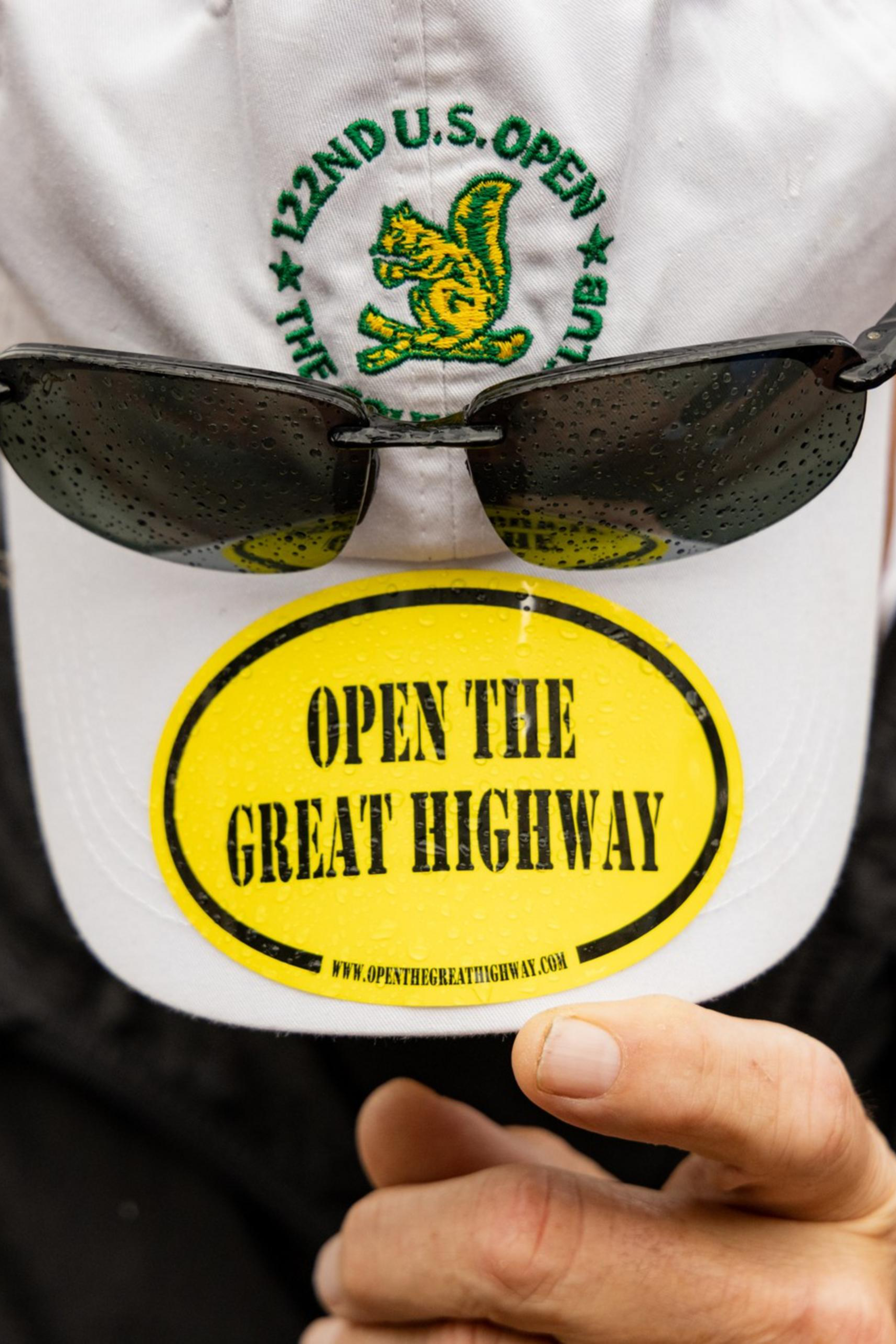

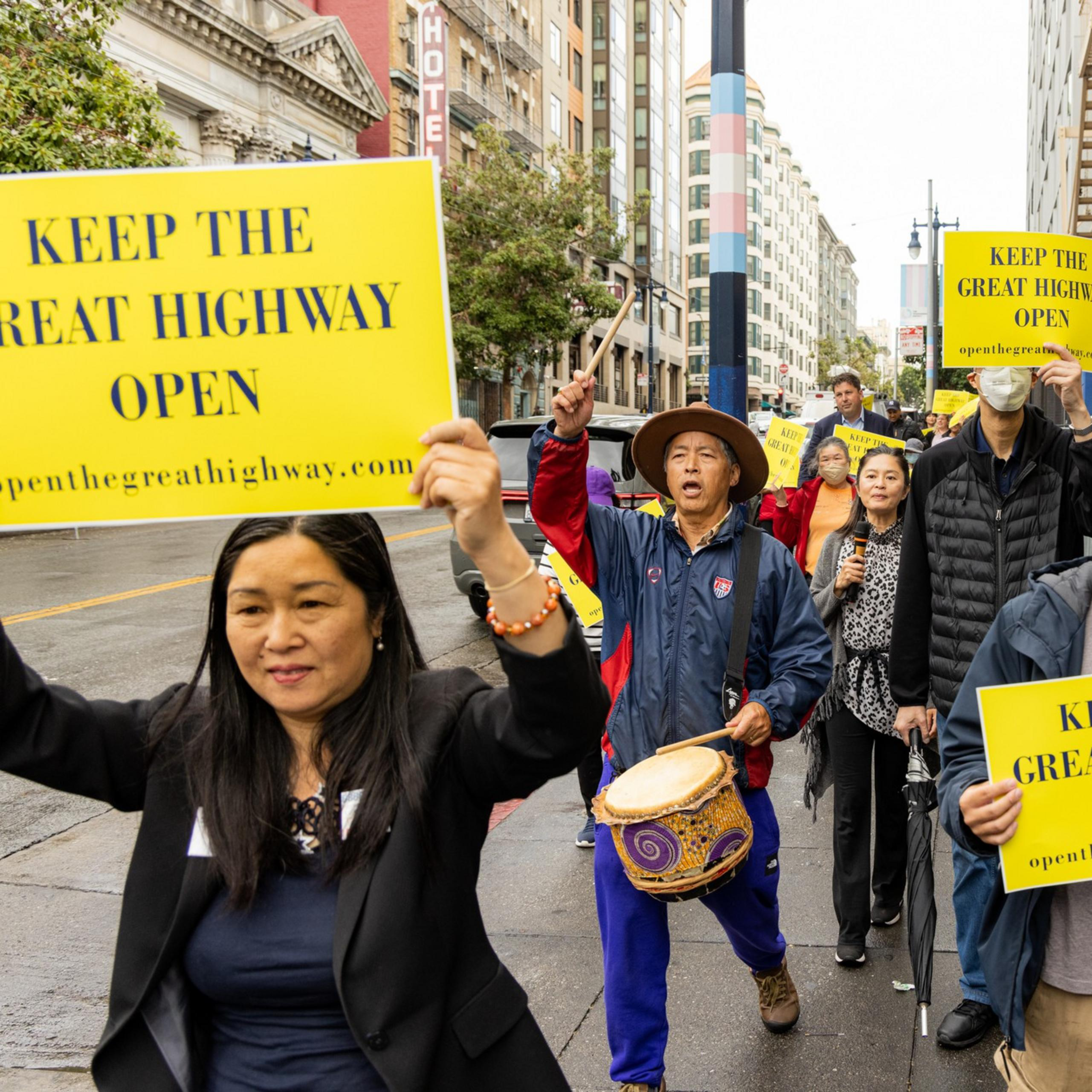

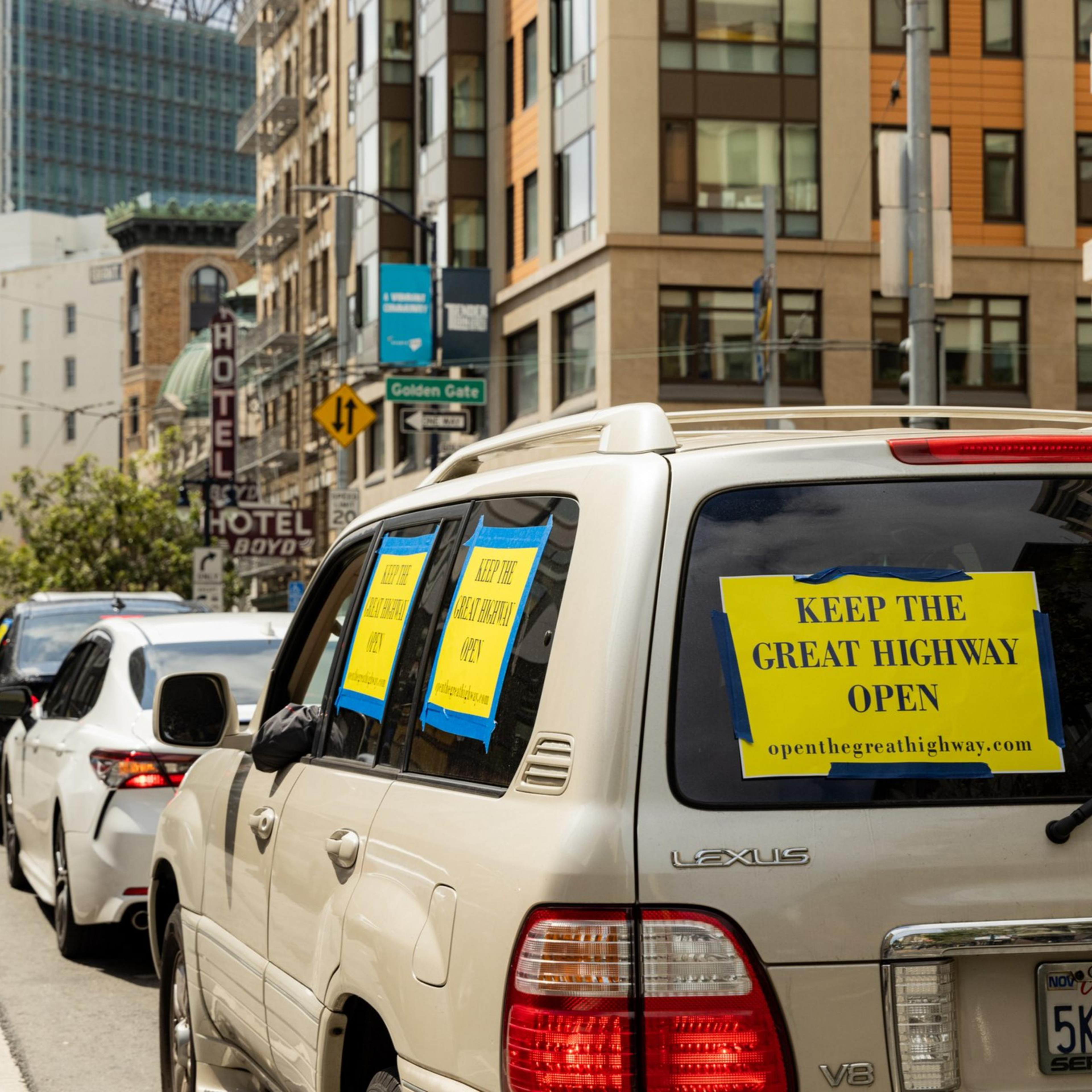

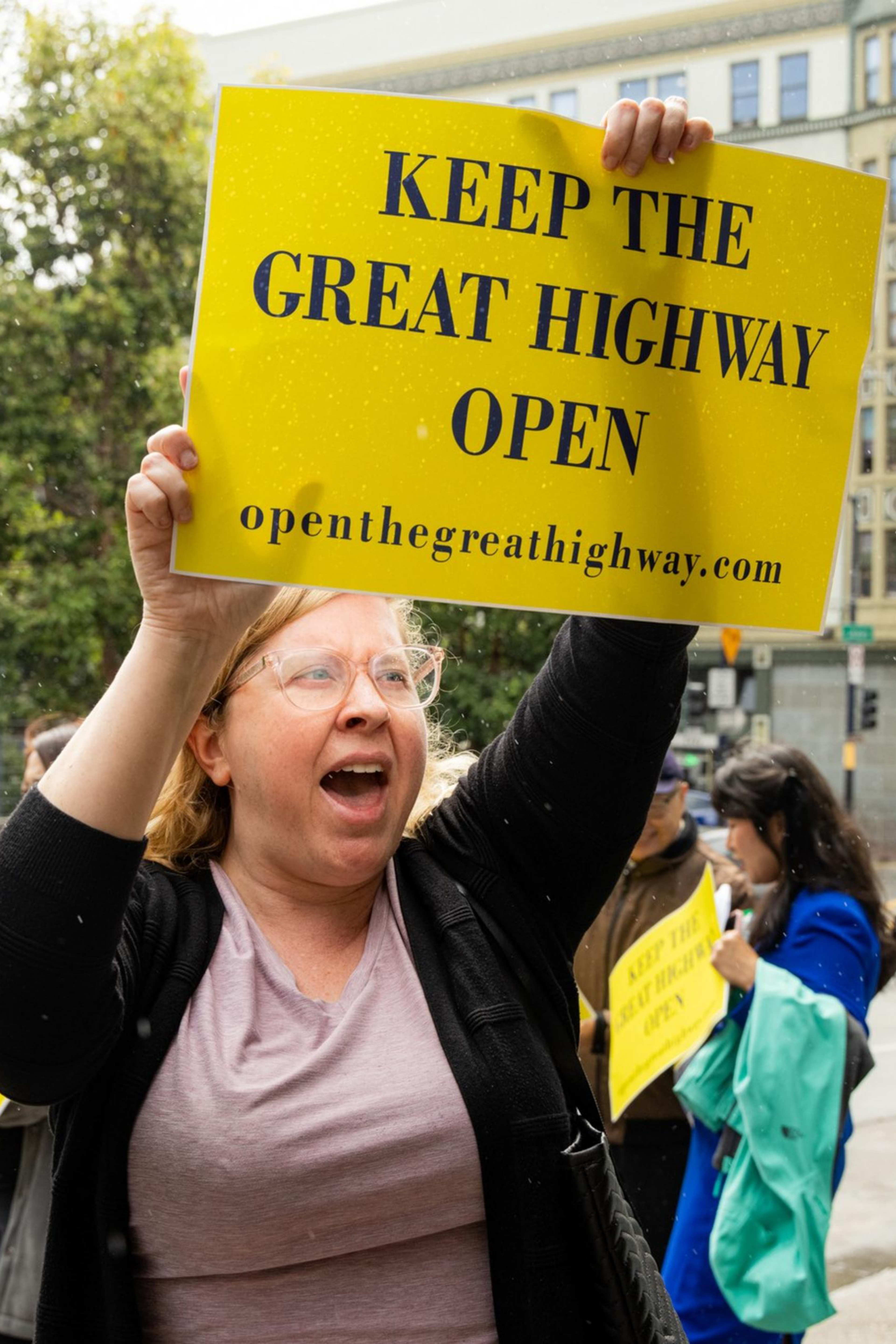





Stephen Gorski, who says he lives “literally 100 feet from the highway,” joined the No on K crowd on Market Street to educate other parts of the city about the impact of a permanent closure. He said proponents of the measure overstate the number of visitors who frequent the car-free thoroughfare.
“As an example, yesterday I went out twice; I counted no more — and I took photos at 5 o’ clock, looking north and south — and I saw 12 people, combined bicyclists, pedestrians, runners,” he said. “Twelve. And yet it was bumper-to-bumper on the Lower Great Highway because they close it at noon. And it’s stupid.”
Josephine Zhao — president of the Chinese American Democratic Club, which led the anti-K car rally — said she opposes the ballot measure because the Great Highway is a lifeline for the city’s Westside.
“Especially for families that need to take their kids to school, then working people who need to go to work physically, who go to work in cafeterias and as custodians, but also retirees and disabled people that need to rely on cars,” she said.
Traffic that would otherwise be routed along the two-mile run of the Upper Great Highway gets routed to Sunset Boulevard, which is under construction, Zhao noted. For the boulevard to see a flood of cars while mitigation measures are still underway, she argued, is a sign of poor planning by the city.
“Right now, we are putting the carriage before the horse,” Zhao said. “And it’s not the democratic way to do it.”
Another No-on-K rally attendee, Elisa Smith, started a group on NextDoor two-and-a-half years ago to document parking removal and street shutdowns all over the city — “and people were blown away,” she told The Standard.
“So this is all part of it,” the Sunset District resident said of Prop. K.
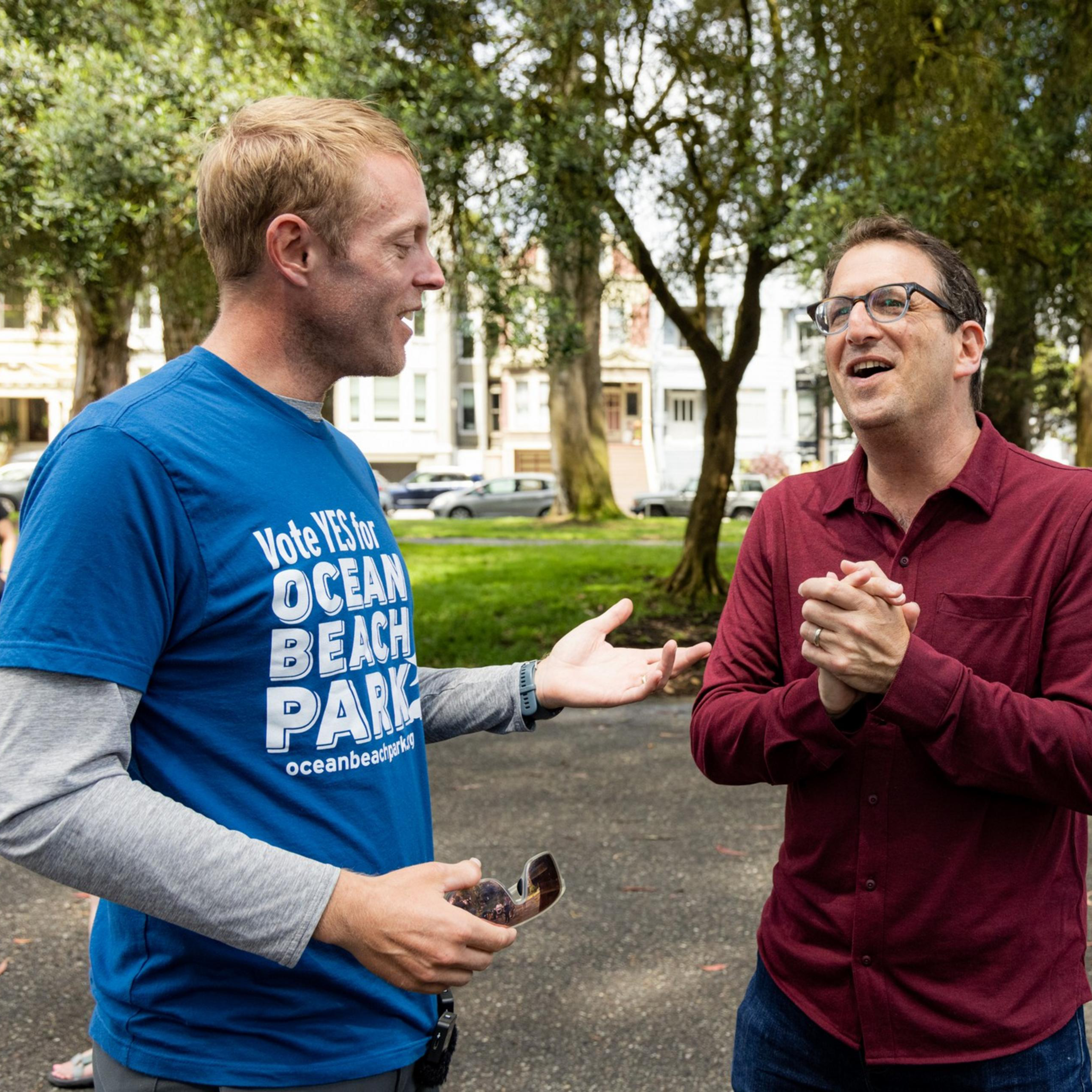

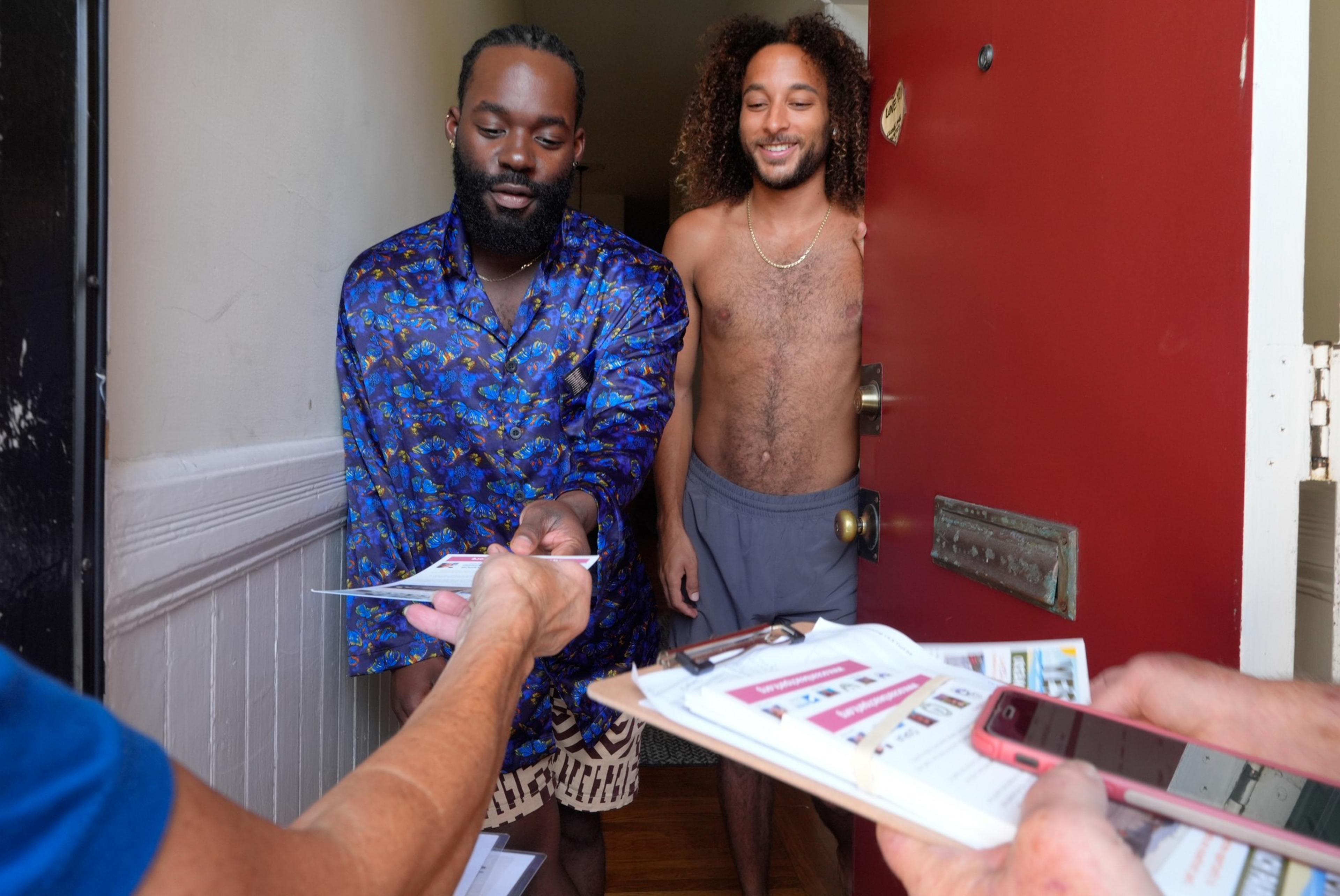
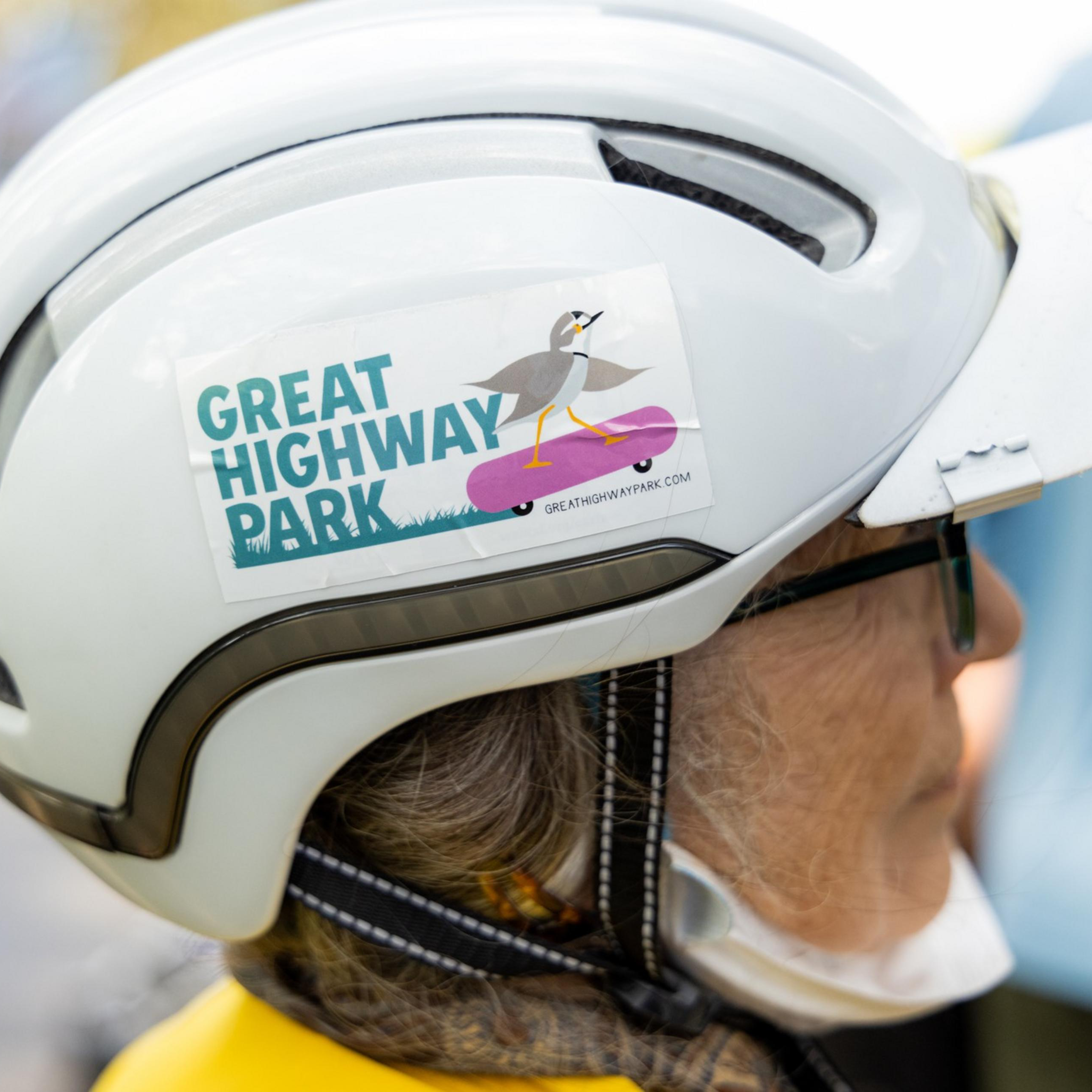


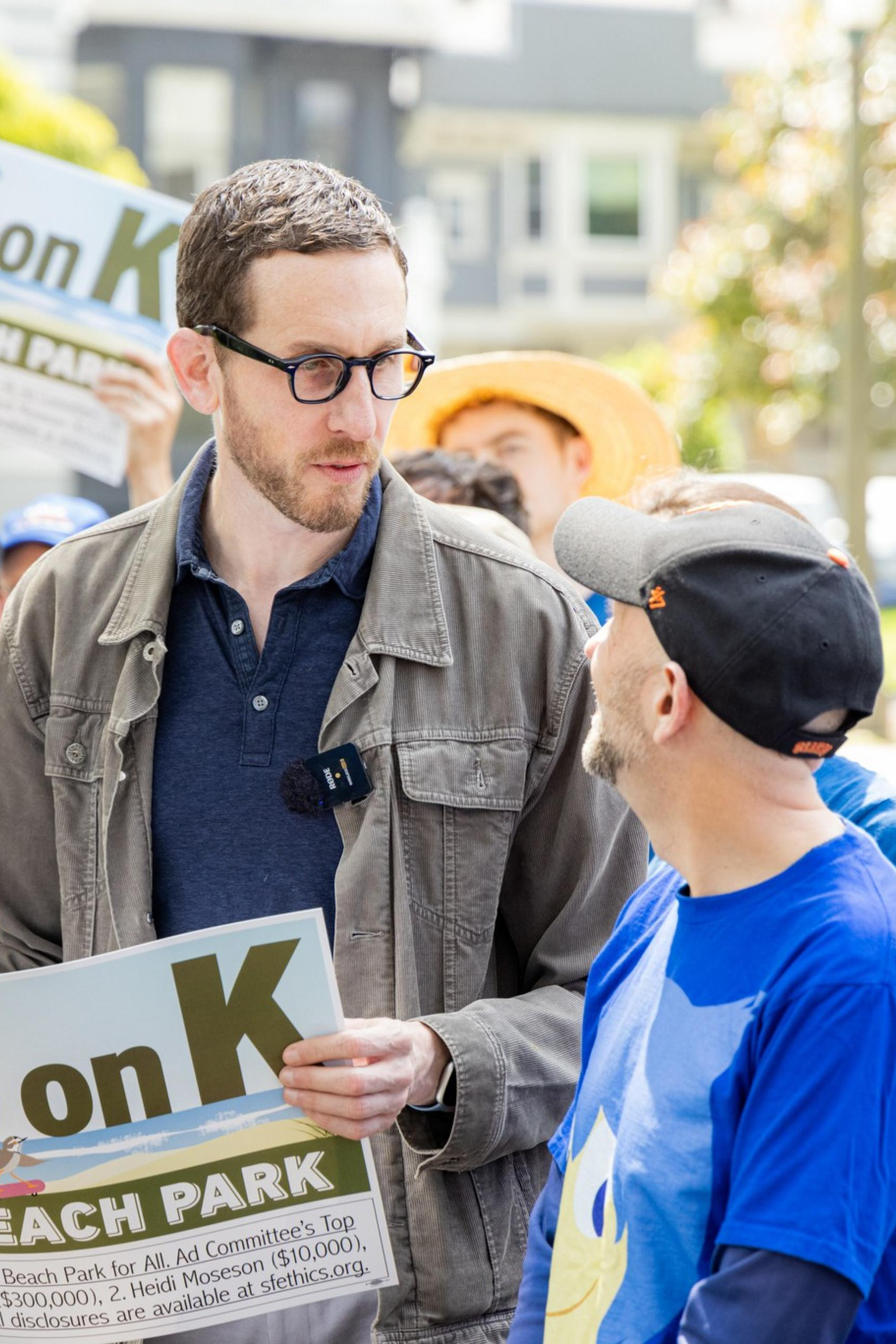

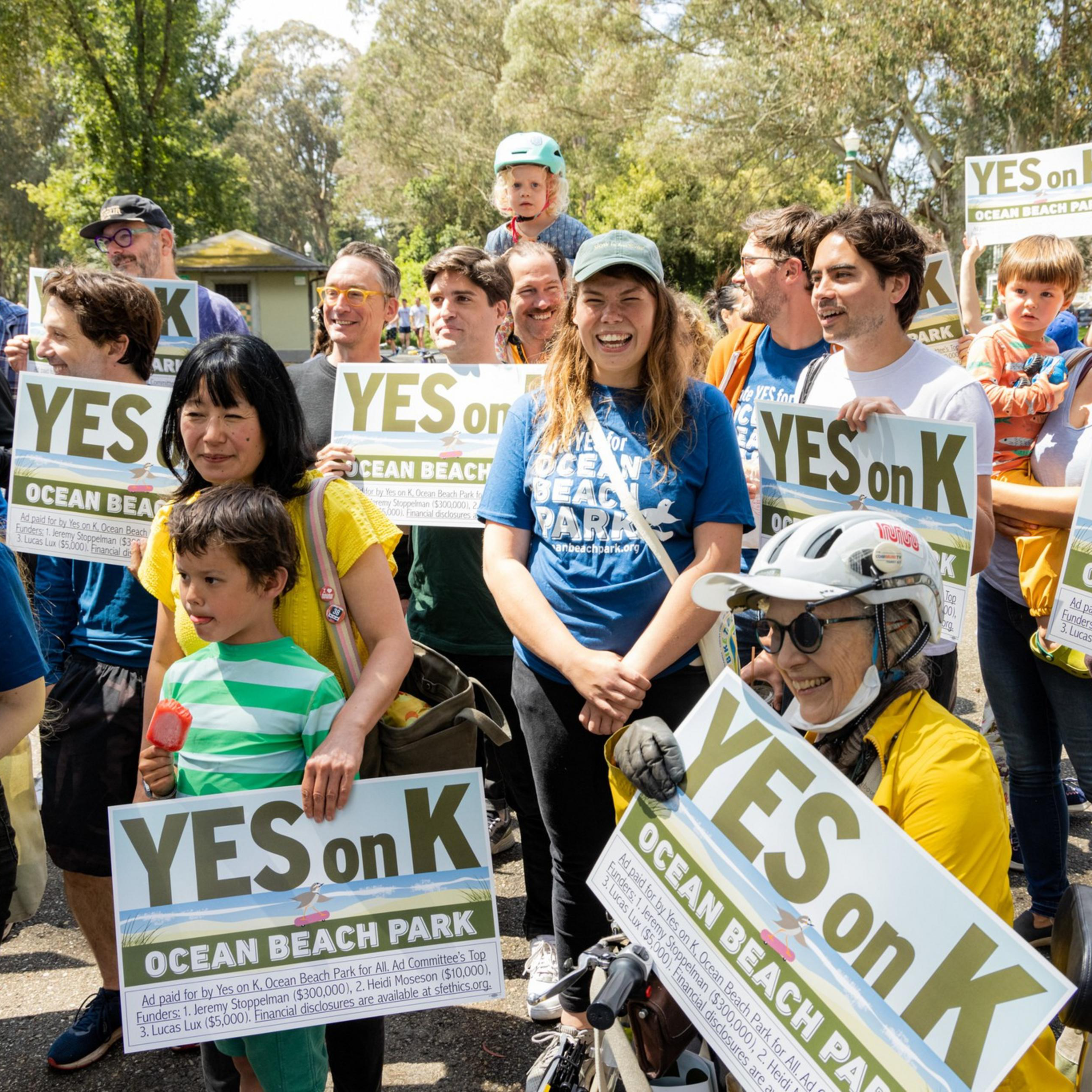




At the Yes on K rally, Wiener called the measure a once-in-a-lifetime chance to build something great.
“This is a generational opportunity to create an oceanfront park so that people can just enjoy themselves and bike or walk or just hang out, be with their kids,” he said.
Closing JFK Drive to vehicle traffic made that roadway a wildly popular destination for pedestrians, he said. The same was true for Octavia Boulevard after the city took down part of the Central Freeway, he added.
“Every time we have a fight about whether to turn pure car space into space for people and every time we actually take that step, it ends up being wildly successful,” Wiener said. “And people look back and say, ‘Wow why was that even controversial?'”
If voters pass Prop. K, campaign manager Lucas Lux said that would be just a starting point.
“We can’t begin to imagine what a future coastal park could look like,” he said, “until we first pass Prop. K and set aside part of our coast for use as a park.”

